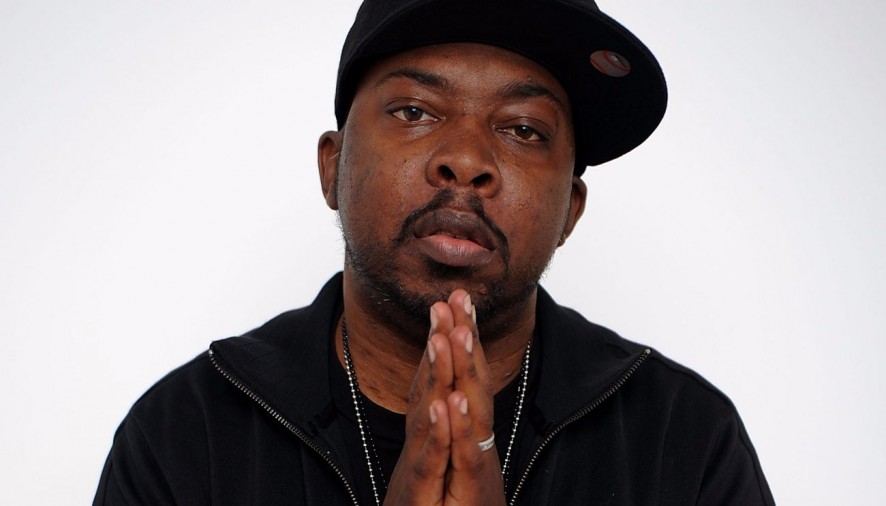‘Yo! Microphone check, one two what is this? The five-foot assassin with the roughneck business.’ The immortal opening line of A Tribe Called Quest’s ‘Buggin’ Out’ from their seminal 1991 record The Low End Theory hits as hard now as it ever did, cementing the MC Phife Dawg as one of the most important rappers in the early alternative hip hop scene. Along with rapper and childhood friend Q-Tip, Phife fronted of one of the 90’s most influential rap groups, breathing fresh, positive air into a hip hop scene dominated by west coast gangsters, breaking from the posturing and violence which many had come to associate with rap. That line tells you a lot about what Phife and Tribe were all about; self deprecating, witty, but able to rhyme with a subtle ferocity – that initial “Yo!” hits you in the face, before settling into an easy flow over simple beats littered with jazz samples. Phife’s death on the 22nd of March at the age of 45 came after a long battle with diabetes, causing him to cancel tours and cruelly cutting short his life before a comeback album was ready for release. Although Tribe haven’t released anything as a group since The Love Movement in 1998, their legacy has made them one of the most beloved groups in rap history, with their style often imitated, but never surpassed.
A native of Queens, New York, Phife was born in 1970 into a hotbed of hip hop activity; by his teenage years in the 80s, Run DMC and LL Cool J were giving the area national attention, while bloc parties and street DJs were engaging a young generation in this burgeoning scene. At school, Phife and Q-Tip would begin rapping together, rhyming over songs they heard on the radio and later over beats played by another local friend Ali Shaheed Muhammed, who would make up the third member and DJ of their group. Initially going by only Quest, they were encouraged to add the preamble by The Jungle Brothers, another Queens based rap group, something for which they should be eternally grateful, as A Tribe Called Quest remains one of the most unique names for any group – elusive and mysterious; indicative of their nature as outsiders in the hip hop world. By the late 80s they had a demo released, and a record deal signed with the independent Jive records, a move which helped them maintain the creative freedom which would allow them to develop their own sound.
When it comes to their records, Phife really comes into his own on The Low End Theory, as Q-Tip dominated their exceptional debut People’s Instinctive Travels and the Paths of Rhythm. This suggests what many see as the problem with Phife – living in Q-Tip’s shadow, lacking the talent for picking the samples which make up a huge amount of Tribe’s music, neither being able to compete with his distinctive, languid flow. However, this is to miss the point and misunderstand his role in the group; Phife acts as a perfect counterpoint, with his gruff voice and consistently hilarious lyrics complementing the overall sound perfectly. His ‘funky introduction’ on The Low End Theory’s ‘Check the Rhime’ is surely one his highlights, and his work on Midnight Marauders, the groups third album completing a trio of records (whose quality never drops), is also exceptional. Arguably their best body of work, here Phife’s lyrical content gained a maturity, with references to Mandela, Steve Biko, and challenging the prevalence of derogatory slang within the black community. The next two albums before their 1998 split saw less critical reception for the group, as did Phife’s solo venture Ventilation: Da LP, however his work with the likes of J Dilla and Pete Rock shows the respect he maintained within the hip hop community over this period.
Outside of the rap scene, Phife was an avid sports fan, particularly a basketball enthusiast, somewhat ironic given his diminutive stature at five foot three, but his passion is evident in many of his lyrics and in his venture into sports commentary. However, following a diabetes diagnosis in 1990, Phife struggled with diabetes in the latter part of his life, despite a kidney transplant from his wife, preventing him from achieving all of his plans, and ultimately leading to his death. This period of illness is touched on in the excellent documentary Beats, Rhymes, and Life: The Travels of A Tribe Called Quest, which details the groups career.
Phife Dawg went under many monikers in his time: The Five-Foot Assassin, The Five-Footer, Dynomutt, but his style and flow remained consistent, with an indomitable positive energy. Just looking at the artists paying tribute to him gives an indication of his legacy, as everyone from Kendrick, to Chuck D, to Questlove have acknowledged his influence on their own work. And really, this should not be surprising, as he was key to a group which changed the game in 90s hip hop, making it accessible, giving alternative rap status, and battling negativity in a haze of chilled out, jazz fuelled beats and rhymes.
Harry Stott

